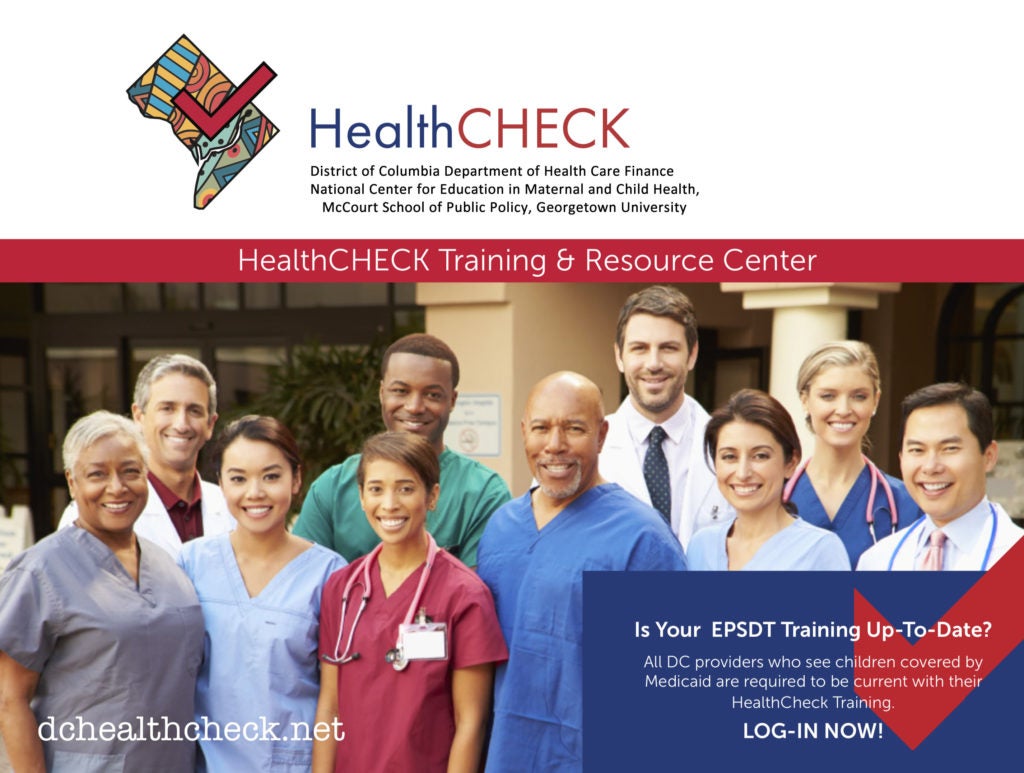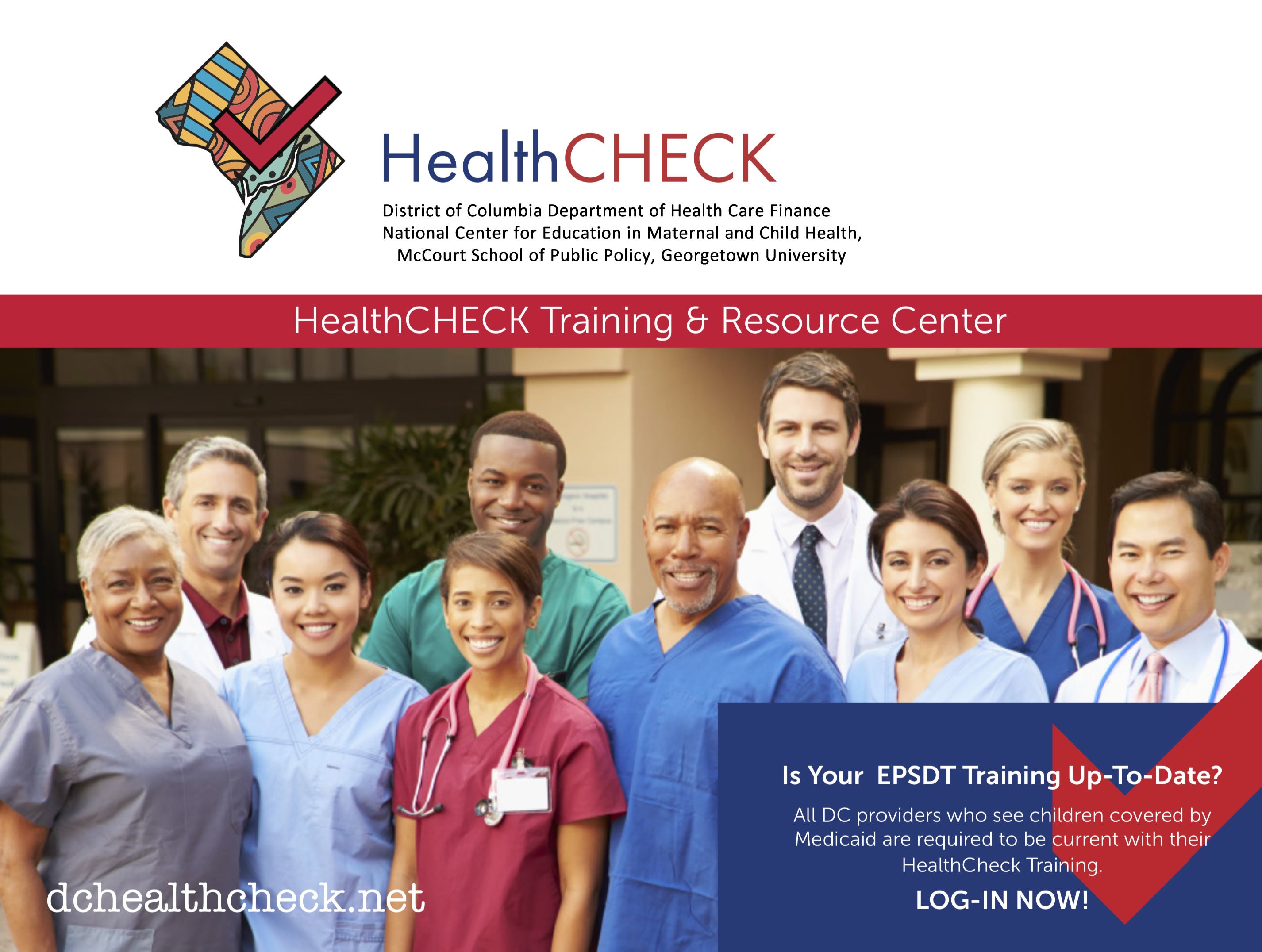Helping Doctors Care for DC’s Most Vulnerable
For more than 15 years, the McCourt School’s National Center for Education in Maternal and Child Health has been helping Washington, DC’s pediatric medical providers better serve some of the city’s most at-risk residents—children of low-income families.

National Center at McCourt School Helps Doctors Care for DC’s At-Risk Children
The McCourt School’s National Center for Education in Maternal and Child Health (NCEMCH) has been helping Washington, DC’s pediatric medical providers better serve some of the city’s most at-risk residents – children of low-income families – for more than 15 years.
Through its HealthCheck Training and Resource Center, NCEMCH provides a repository of online training and resources on Medicaid’s benefit program for infants, children, adolescents and youth. The benefit is also known as the Early, Periodic, Screening, Diagnostic and Treatment (EPSDT) services.
The resources are easily accessed by medical professionals, including pediatricians, physician assistants, nurse practitioners, nutritionists and oral and mental health providers, via HealthCheck’s website, which also provides updates on important medical-related news impacting the District.
“DC is head and shoulders above most states in ensuring that all of the providers servicing children from vulnerable families get the training that they need to tackle the issues that these families are facing,” says John Richards, executive director of NCEMCH and principal investigator of HealthCheck.
Thanks to HealthCheck trainings, for example, medical providers are better equipped to prioritize and document the many aspects of a well-child visit, allowing them to spend more time with their young patients and hone in on specific issues that children and their families may be facing.
“These are the resources that doctors don’t have the time to learn or find on their own, and they have a trusted source in DC HealthCheck,” Richards says.
A Powerful Partnership
Initiated in partnership with DC’s Medicaid agency, the Department of Health Care Finance (DHCF), NCEMCH’s HealthCheck system also keeps track of medical providers who are current in required trainings.
It also monitors medical providers who may be coming due or are past due for these trainings, allowing DHCF to work with DC’s managed care organizations (MCOs) to outreach providers and alert them of their status.
“[DHCF] relies on us to interface with the MCOs and the medical community, and they in turn are the driver in making sure that knowledge is put into practice to help D.C. families,” Richards says.
Since the system’s inception, training compliance rates in the District have increased from 12% to 97%, demonstrating the powerful benefits of this university-state government partnership working for the good of local residents.
‘Incubator for Collaboration’
Not resting on its laurels, NCEMCH continues to expand HealthCheck’s educational offerings as the needs of District residents evolve. Five years ago, the center added a training on fluoride varnish, which is an evidence-based practice shown to be effective at reducing the occurrence of children’s cavities.
The center also recently worked with the DC Collaborative for Mental Health in Pediatric Primary Care to create and post a number of resources that help link pediatric providers with mental health practitioners and agencies.
“This is really critical,” says Richards, “because if you’re a doctor, and you know you want to refer children but don’t have anyone to refer them to, you’re not going to make the referral. These resources allow for referrals to happen easily.”
Not only is HealthCheck a great incubator for collaboration, adds Richards, but it is a go-to, dependable resource for DC’s pediatric medical community.
“People feel safe, and they know that the resources are applicable to the community and that they have meaning,” he says “Our partnership with the District truly has the ability to facilitate change.”
